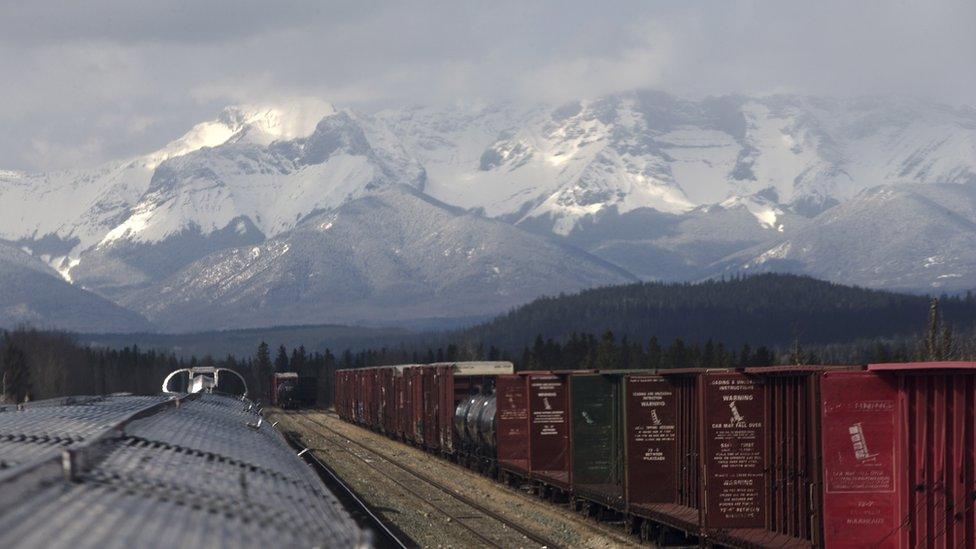Rail blockades 'must come down', says Trudeau
- Published
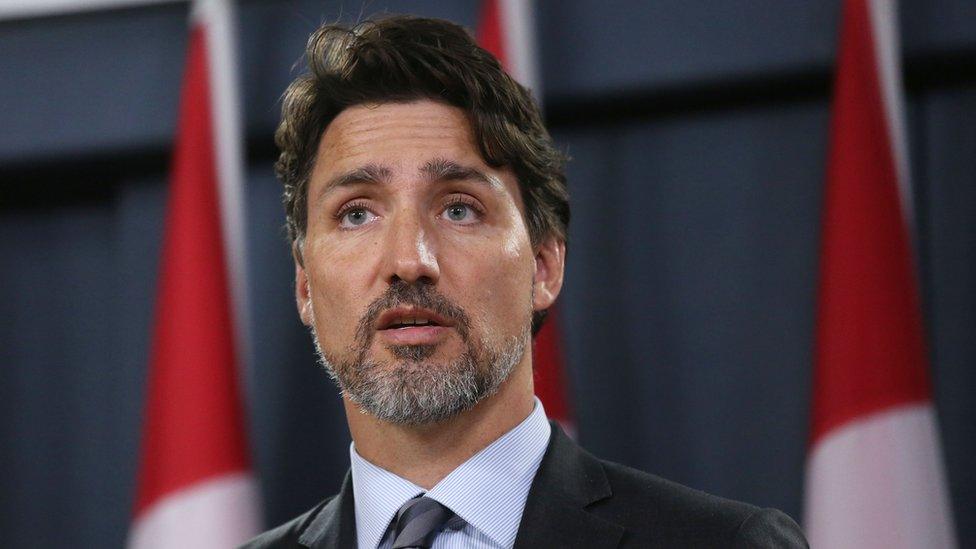
Prime Minister Justin Trudeau says patience is running low over blockades
Rail blockades that have paralysed parts of Canada's transport system must "come down now", says Prime Minister Justin Trudeau.
Canadians are running out of patience as the blockades and protests enter their third week, he says.
Many freight and passenger routes are blocked due to protests that began over a pipeline that cuts through native lands.
Mr Trudeau says attempts at engagement have not been constructive.
These are the toughest words from the prime minister on the protests that have left hundreds of trains idle, and led to almost 1,500 temporary layoffs of rail workers and to growing concerns about wider economic repercussions.
Pressure on the prime minister had been mounting to resolve the matter.
Mr Trudeau told journalists at a news conference on Friday afternoon the situation was "unacceptable and untenable".
"The fact remains the barricades must now come down and the [court] injunctions much be obeyed and the law must be upheld."
CN Rail, a freight railway, has obtained court injunctions to clear some blockades, but police have so far refrained from using force to uphold them.
Mr Trudeau left it up to police in those jurisdictions to decide when and how to act on court injunctions, though he urged for the barricades to be brought down "peacefully".
Indigenous leaders behind the protests say their demands, necessary for starting talks, have not been met.
What is the background?
The Coastal GasLink pipeline is a 670km (416 miles) project that would ship natural gas from the north-eastern part of British Columbia to the coast.
The C$6.6bn ($4.9bn, £3.8bn) project, in a remote part of the province about a full day's drive from Vancouver, has been in the works since 2012.
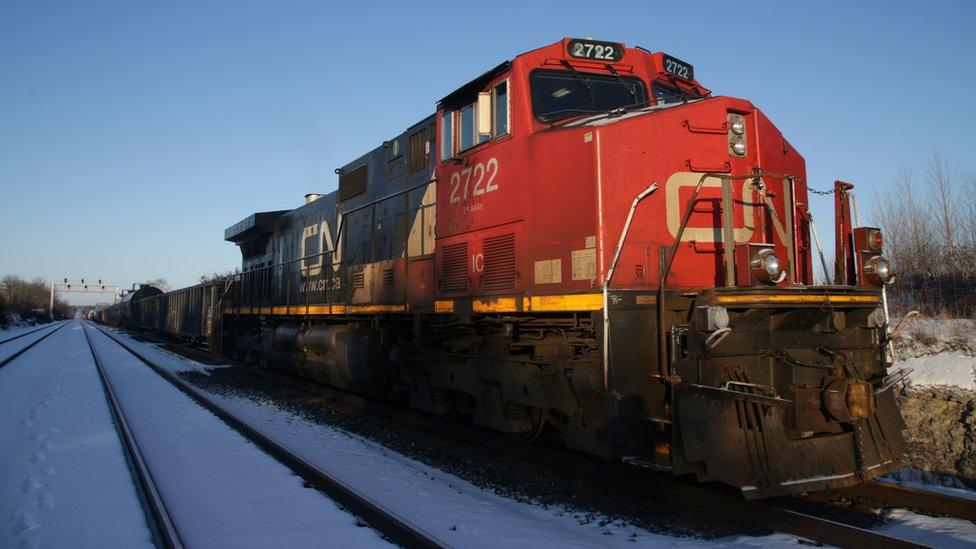
Canada's freight trains transport more than C$310bn worth of goods each year
Coastal GasLink has reached deals with 20 elected indigenous councils along the route, including some Wet'suwet'en councils.
Training, employment and community investment forms part of the agreements.
But Wet'suwet'en hereditary chiefs oppose it and claim they hold authority over a bigger expanse of traditional lands, not just reserve land, over which the elected councils have no jurisdiction.
It's not clear exactly how much support - or lack of support - there is within the broader Wet'suwet'en community for the pipeline or the protests, though some have told the media there are splits within the community.
For years, protesters have erected camps along the proposed pipeline route to prevent access to construction sites.
In early February, the Royal Canadian Mounted Police (RCMP) enforced a court injunction and cleared the camps, arresting people in the process.
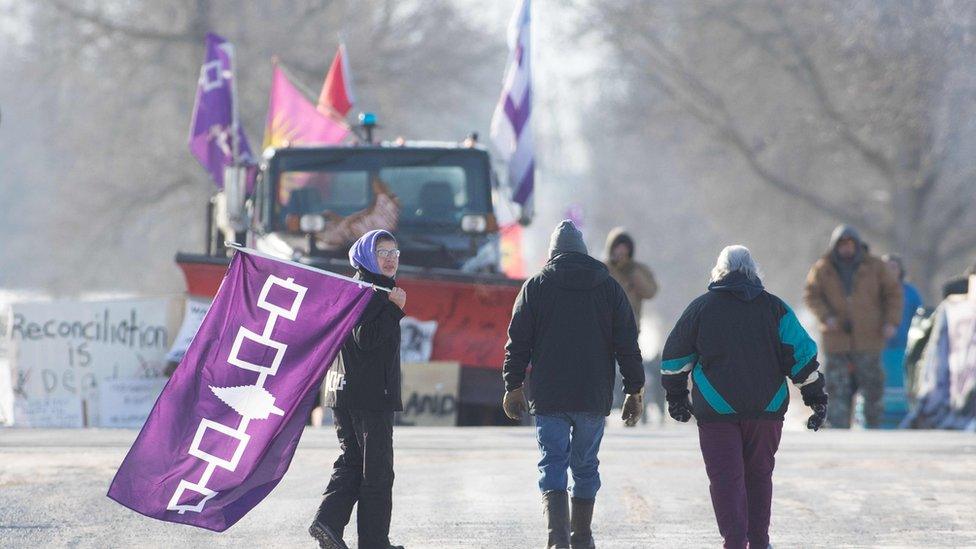
A blockade near Belleville, Ontario, has halted a lot of rail traffic
Meanwhile, other blockades and protests have sprung up across the country in solidarity with Wet'suwet'en hereditary chiefs, disrupting rail lines, ports and highways.
While the conflict is in part over opposition to the pipeline project, it is also about broader complex issues like indigenous governance, indigenous rights and reconciliation.
Mr Trudeau and his Liberal government have spent the past two weeks urging patience and dialogue to solve the matter.
He said the onus was now on indigenous leadership to end the blockades.
Hereditary Chief Woos told a news conference on Friday in Tyendinaga, Ontario, that his group would enter into talks when the RCMP completely left Wet'suwet'en territory and all work by Coastal GasLink in the region had ceased.
"If they show respect, definitely we'll start talking," he said.
Wet'suwet'en hereditary chiefs met on Friday with Mohawk protesters leading one of the major blockades, who said they would continue to stand firm.
- Published11 February 2020
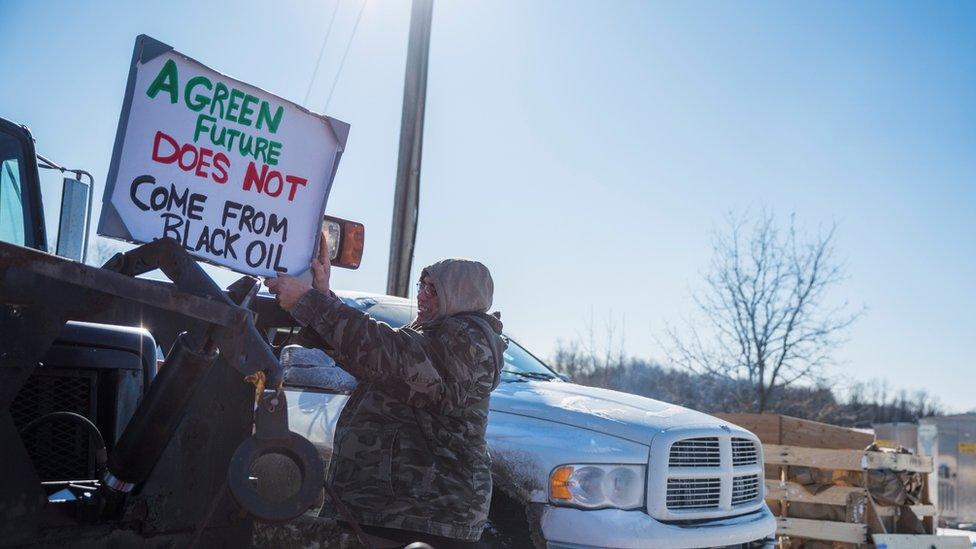
- Published14 February 2020
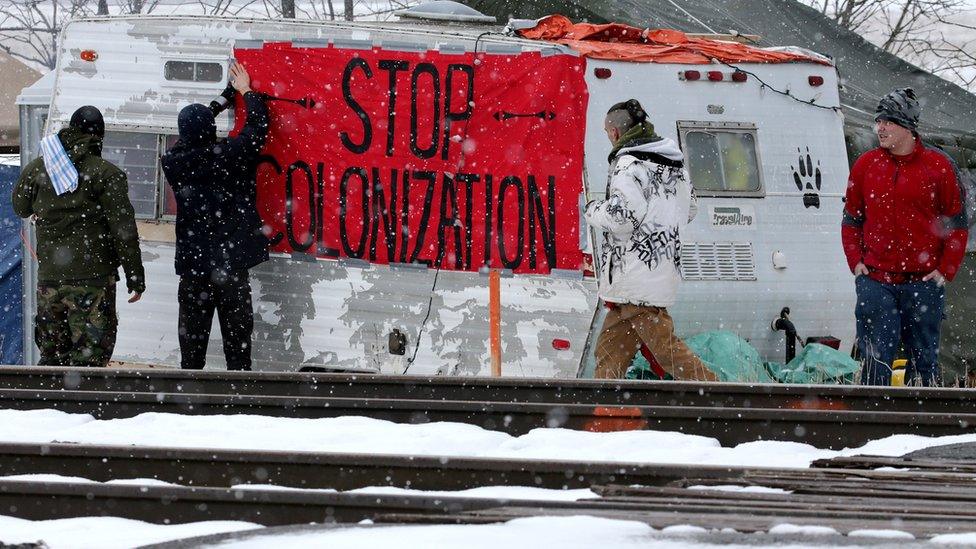
- Published13 February 2020
